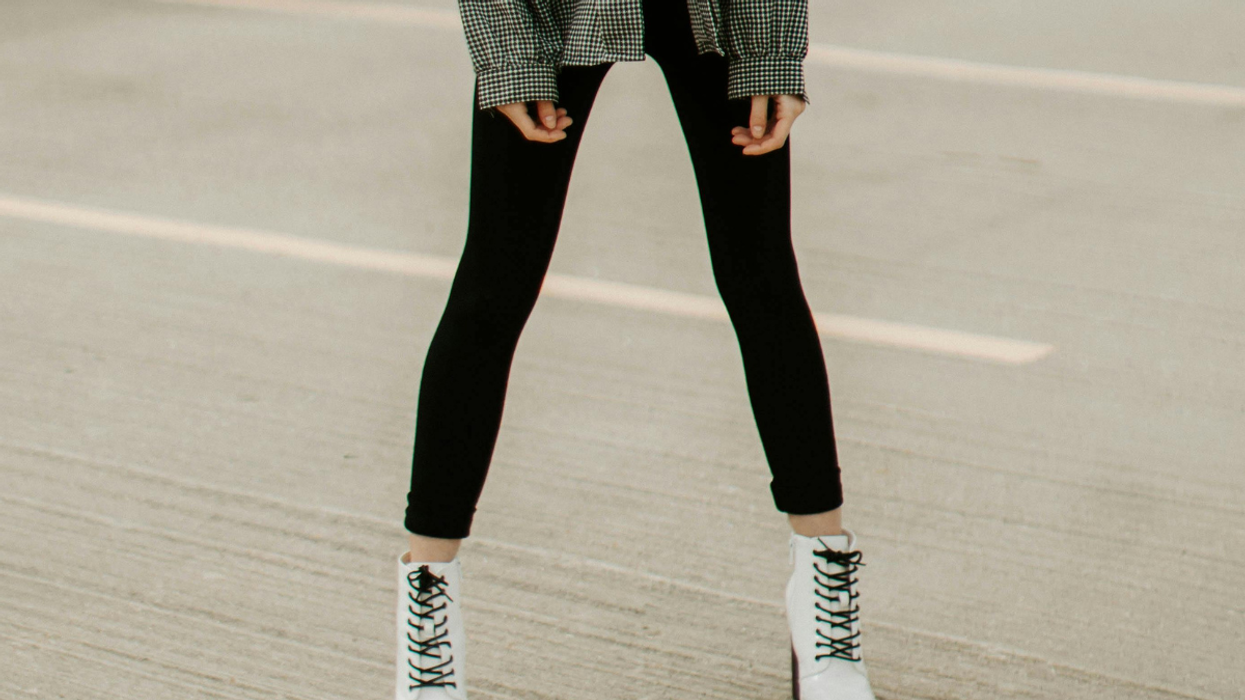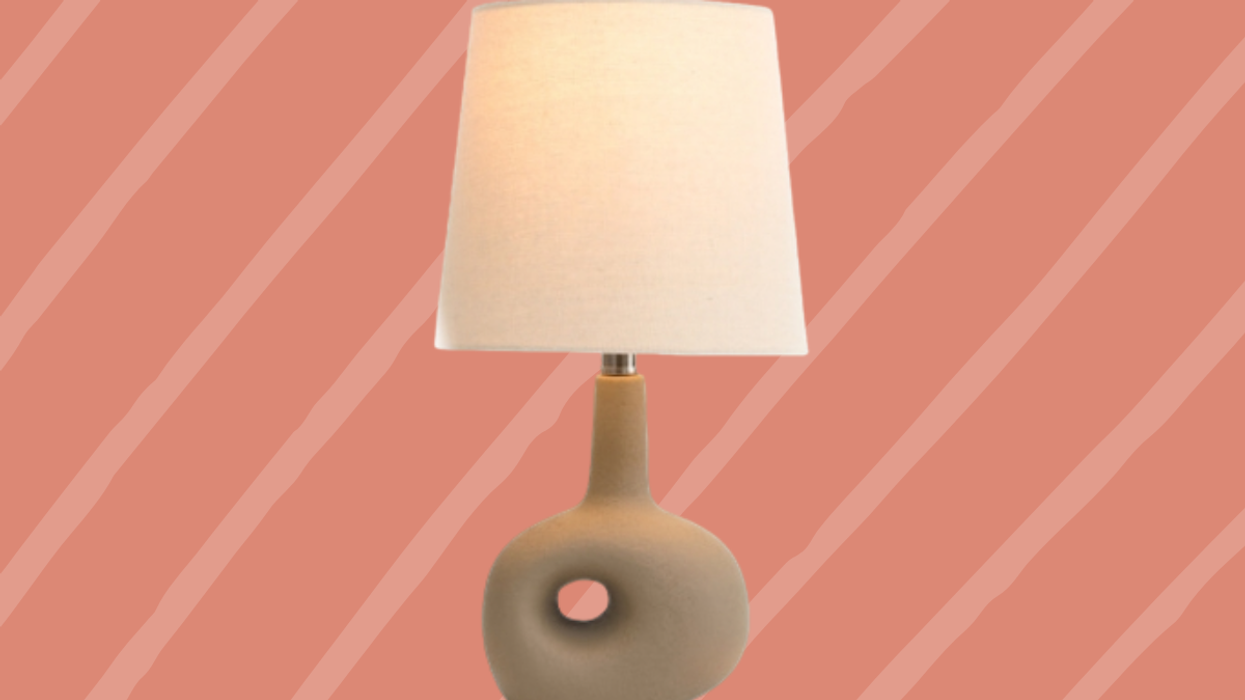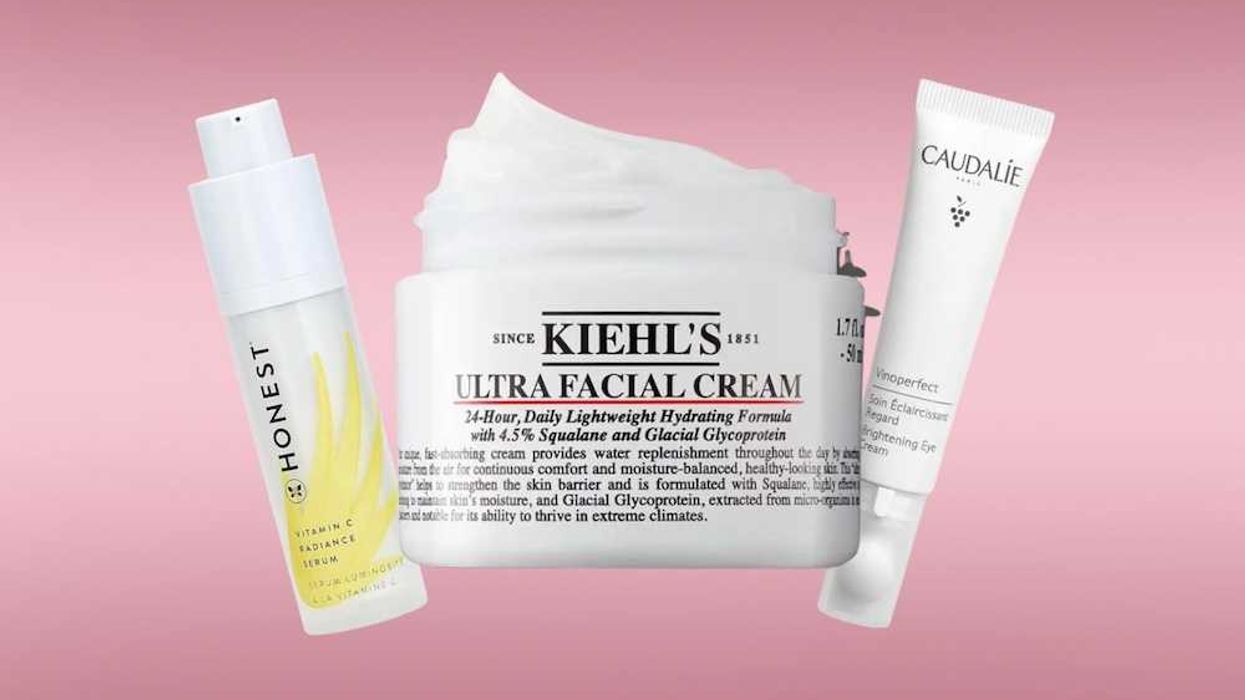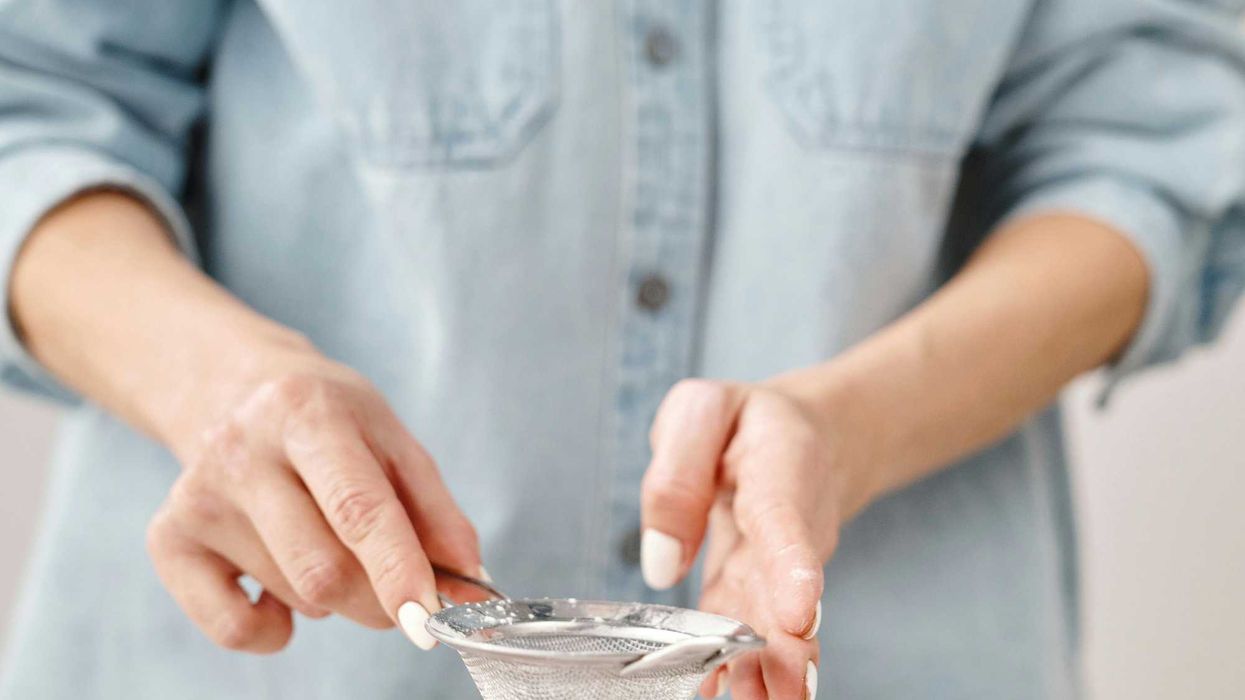Sweet dreams.
This Essential Oil Could Help You Sleep Better
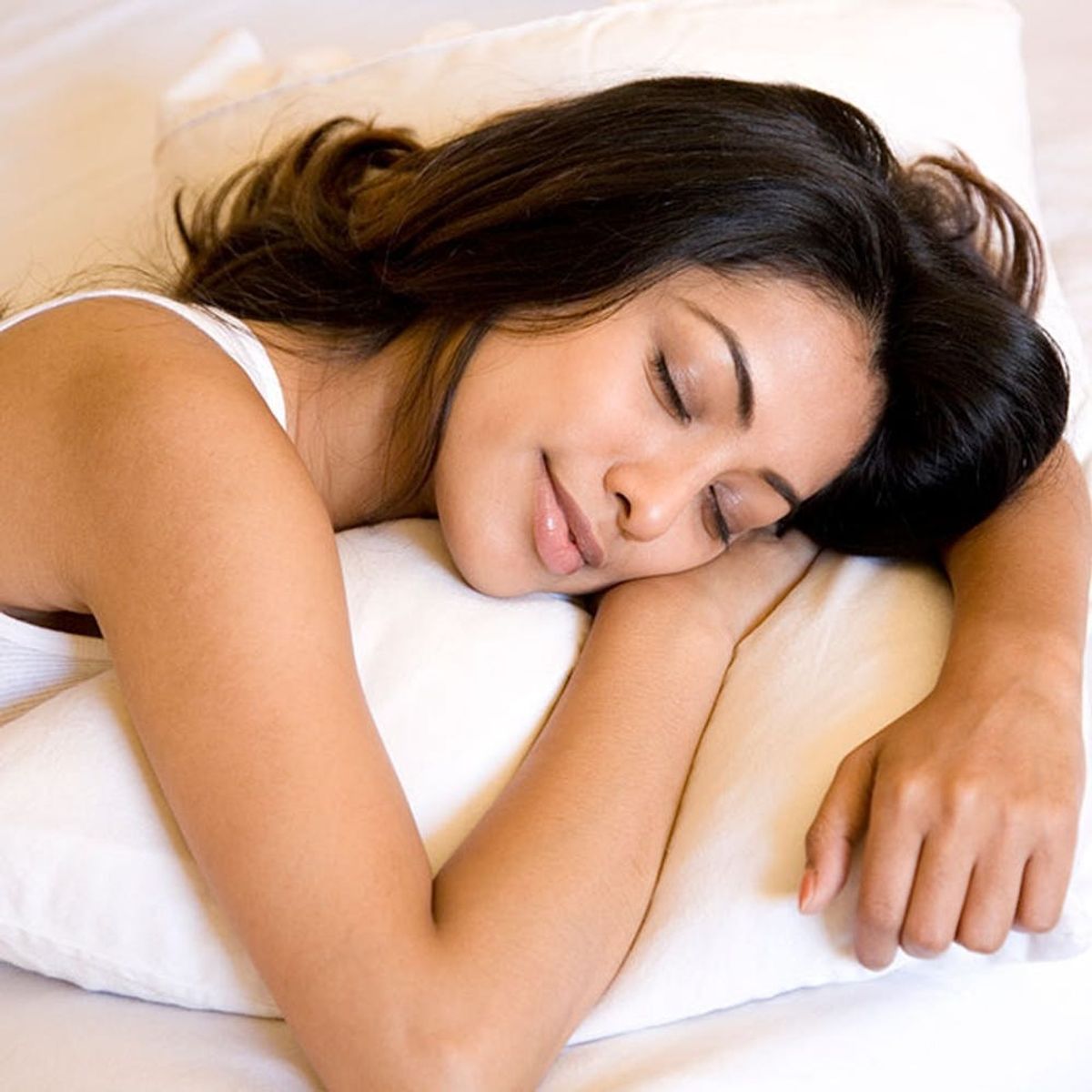
With the surge in popularity of essential oils, you can purchase and use these little vials for just about any bodily complaint. Got a headache? Peppermint oil just might ease the tension. Raging breakout? Some people (Khloé Kardashian included) swear by tea tree oil for acne. The list goes on and on. While some health benefits of essential oils are probably purely anecdotal, others have significant scientific evidence behind them. Lavender oil for sleep is one example.
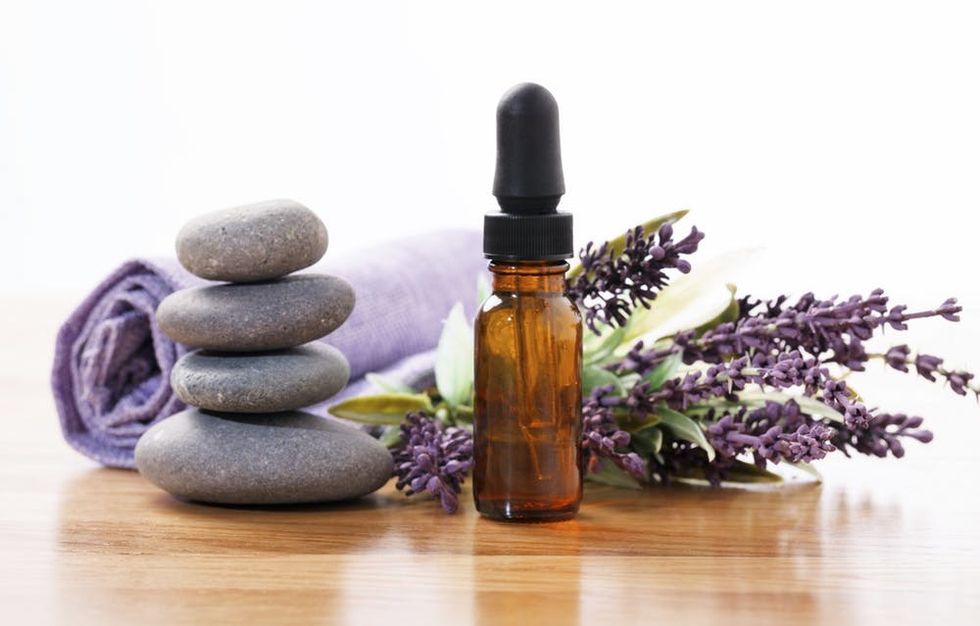
Though lavender has been used to promote relaxation (and, therefore, sleep) for thousands of years in traditional medicine, more recently, researchers have assessed these effects from a scientific perspective — and their findings are encouraging. In one example, Taiwanese researchers had insomniac women inhale lavender aromatherapy for 20 minutes a day twice a week. After 12 weeks, participants reported a significant improvement in sleep quality. In another experiment, when 20 healthy volunteers inhaled lavender oil, their blood pressure, heart rate, and skin temperature all dropped — indicators that the body is preparing for rest.
better Rest through Reduced Anxiety
Another reason lavender may be effective for sleep is that it can decrease anxiety. (After all, who can sleep when carrying a mental burden of stress and worry?) Numerous studies have found the effects of lavender comparable to low doses of the prescription anti-anxiety drug Ativan, both for mental health and sleep. Not surprisingly, lavender appears to relax the nervous system by a very similar mechanism to pregabalin (also known as Lyrica), another prescription medication used to treat anxiety. And unlike heavy-duty prescription drugs, lavender appears to have “sleep promoting,” rather than sedative properties. For those of us who’d prefer a gentle glide into sleep over getting knocked into a state of total unconsciousness, this is good news.
Lavender use for mental health and sleep is especially popular in Germany, where much of the research on its effects has been conducted. Five German double-blind studies gave women with moderate to severe anxiety disorders a lavender supplement over six to 10 weeks. After this treatment, women in all of the studies had reduced symptoms of anxiety, and in two of them, they also reported significant improvements in sleep duration and quality. Looking at the entire body of research available until 2012, a systematic review concluded that lavender oil “may be of small to moderate benefit” for sleep. So while it may not be the cure-all for hardcore insomniacs, it’s probably worth a try, especially for occasional trouble sleeping.
how to use lavender for sleep
With lavender’s proven effects on sleep quality, you may decide you’d like to give it a whirl. If so, the options abound for how to dose yourself at bedtime — and the most successful method may depend on your personal preferences. Some proponents recommend the “cup and inhale” method of placing a few drops of lavender oil on the palms, then drawing them up to the face for several deep inhalations. Other people find that applying oil directly to the face increases effectiveness, since you’ll continuously breathe in its aroma. Sprinkling your pillow and bed sheets with drops of oil or placing it in a diffuser are other easy methods for keeping the scent close by. One more pro tip: Unlike many other essential oils, it’s generally not recommended to use a “carrier oil” like olive or coconut alongside lavender.
For those who might be averse to lavender’s scent (or prefer not to use oil on the skin or bedding), it’s also available in capsules. Gel caps typically contain 80 mg, or four to five drops, of lavender oil and should be taken as directed on packaging. As with all oral supplements, be sure to purchase from a reputable source and discuss your usage with a medical professional.
With evidence-based benefits for quality rest — plus zero addictive properties and a much lower cost than sleeping pills — lavender oil makes an excellent choice for a natural remedy for insomnia. Worst-case scenario, you’ll merely scent your bedroom with a lovely, calming aroma. But if you’re among the fortunate for whom lavender works, you may find yourself pleasantly drifting off, with images of purple flowers bidding you goodnight.
Have you had success using lavender oil for better sleep? Tweet us at @BritandCo!
(Photo and featured photo via Getty)
Brit + Co may at times use affiliate links to promote products sold by others, but always offers genuine editorial recommendations.






